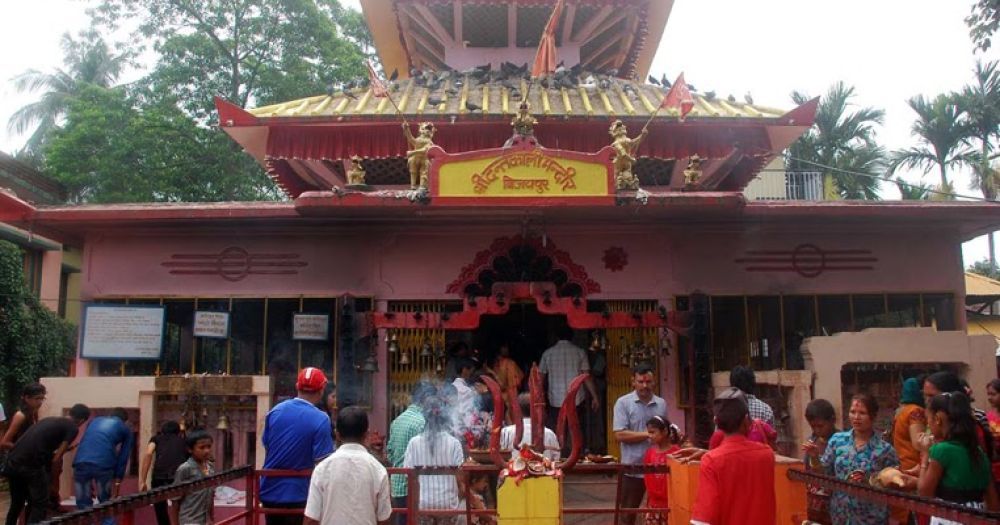

Nestled in the foothills of the Mahabharat Range, the Dantakali Temple is a revered Hindu shrine located in the vibrant city of Dharan in eastern Nepal. Dharan, once a significant British Gurkha recruitment center, has transformed into a bustling multicultural city, and its tourism industry has blossomed around its natural beauty and religious significance.
The Dantakali Temple is a sacred place that has been associated with a rich tapestry of mythology and legend. It is believed to be the spot where the ‘danta’ or tooth of Sati Devi, the consort of Lord Shiva, fell to earth when Lord Vishnu sliced her body into 52 parts using his Sudarshan Chakra to calm Shiva's rage. This makes it one of the Shakti Peethas, which are major shrines of Shaktism, the worship of the divine feminine.
Tourism in Dharan began picking up pace with the development of the city as a retirement haven for ex-Gurkha servicemen, which in turn facilitated the construction of roads and transportation links. While Dharan’s reputation as a health city grew due to its fresh climate, the spiritual allure of the Dantakali Temple drew in religious tourists and pilgrims seeking blessings and paying homage to the goddess.
In recent years, the city of Dharan has implemented several initiatives to further promote tourism. Infrastructure development, including the renovation of the temple and improved accessibility, has made it easier for visitors to reach the shrine. Dharan's role as a gateway to the eastern hilly region of Nepal has also helped increase visitor numbers, not only to the temple but to nearby attractions such as the natural beauty of Illam and the lush tea gardens.
Adventure tourism is an emerging trend in and around Dharan. Activities such as trekking, mountain biking, and paragliding are growing in popularity. Visitors to the Dantakali Temple often combine their pilgrimage with treks to nearby destinations with the temple serving as a serene starting or finishing point for their adventures.
The Dantakali Temple continues to be an epicenter for spiritual and cultural tourism in Dharan. With sustained efforts to preserve its heritage and natural surroundings, the temple remains a beacon for those seeking spiritual solace and is a testimony to Nepal’s enduring commitment to showcasing its religious landmarks.